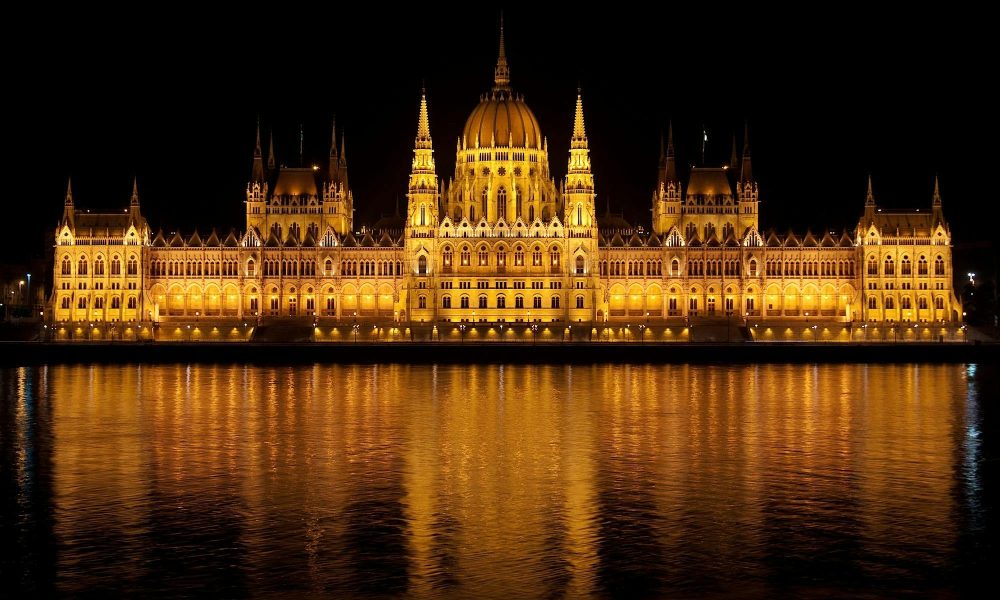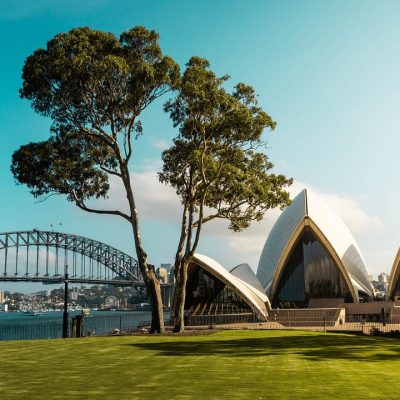
MBBS in Hungary: A Complete Guide for Nepali Students
Introduction
Hungary is a great place for Nepali students to study MBBS. It offers affordable tuition, high-quality education, and globally recognized degrees.
Many universities teach in English, making it an excellent option for international students. The course lasts six years and includes a mandatory internship.
Why Choose Hungary for MBBS?
Affordable Tuition: Compared to Western countries, Hungary offers cost-effective medical education.
Globally Recognized Degrees: Medical degrees from Hungary are accepted by the WHO, NMC (India), GMC (UK), and other global organizations.
English-Taught Programs: Many universities offer MBBS in English, making it accessible for Nepali students.
Multicultural Environment: Students from all over the world study in Hungary, creating a diverse atmosphere.
Pathway to Global Careers: Graduates can practice medicine worldwide after passing relevant licensing exams.
Affordable Tuition: Compared to Western countries, Hungary offers cost-effective medical education.
Globally Recognized Degrees: Medical degrees from Hungary are accepted by the WHO, NMC (India), GMC (UK), and other global organizations.
English-Taught Programs: Many universities offer MBBS in English, making it accessible for Nepali students.
Multicultural Environment: Students from all over the world study in Hungary, creating a diverse atmosphere.
Pathway to Global Careers: Graduates can practice medicine worldwide after passing relevant licensing exams.
Best Medical Universities in Hungary
1. Semmelweis University
Founded: 1769
Location: Budapest
Why Choose? The oldest and most prestigious medical school in Hungary, known for high academic standards and research excellence. It has collaborations with global institutions and offers modern medical facilities. Many Nepali students choose this university due to its reputation and global recognition.
Facilities & Research: The university has world-class research facilities, advanced medical labs, and a strong focus on clinical exposure.
Student Support: Offers dedicated support for international students, including mentoring programs and career guidance.
2. University of Debrecen
Founded: 1538
Location: Debrecen
Why Choose? It has a long history of medical education and a multicultural student body. The university offers advanced research opportunities, modern laboratories, and a well-structured MBBS curriculum. The affordable cost of living in Debrecen is an added advantage for Nepali students.
Clinical Training: Strong emphasis on hands-on training at its university hospital.
International Recognition: Recognized by WHO, NMC (India), GMC (UK), and other medical councils.
3. University of Szeged
Founded: 1872
Location: Szeged
Why Choose? One of Hungary’s top research universities, offering advanced clinical training, hands-on practical experience, and strong international partnerships. The city of Szeged is student-friendly, making it a comfortable choice for Nepali students.
Research Excellence: Known for groundbreaking medical research and innovation.
Affordable Living Costs: Szeged is one of Hungary’s most affordable cities for students.
4. University of Pécs
Founded: 1367
Location: Pécs
Why Choose? One of the oldest universities in Europe, known for its strong emphasis on medical research, student-friendly environment, and high-quality medical education. The lower cost of living in Pécs makes it a budget-friendly option for Nepali students.
Global Partnerships: Collaborates with universities worldwide for research and exchange programs.
Modern Teaching Methods: Uses advanced simulation labs and interactive learning techniques.
Admission Requirements
Students must complete 10+2 education with science subjects (Biology, Chemistry, and Physics).
Nepali students planning to return to India must clear NEET (National Eligibility cum Entrance Test).
Some universities may require entrance exams or proof of English proficiency (IELTS or TOEFL).
Application deadlines vary, so check with your chosen university.
Students must complete 10+2 education with science subjects (Biology, Chemistry, and Physics).
Nepali students planning to return to India must clear NEET (National Eligibility cum Entrance Test).
Some universities may require entrance exams or proof of English proficiency (IELTS or TOEFL).
Application deadlines vary, so check with your chosen university.

Cost of Studying MBBS in Hungary
Tuition Fees
The annual tuition fee for MBBS in Hungary ranges from $12,500 to $17,000.
Living Expenses
On average, students spend $400 to $700 per month on food, accommodation, and other expenses.
Hungary is more affordable than many other European countries, making it a great option for Nepali students.
The annual tuition fee for MBBS in Hungary ranges from $12,500 to $17,000.
On average, students spend $400 to $700 per month on food, accommodation, and other expenses.
Hungary is more affordable than many other European countries, making it a great option for Nepali students.
Recognition and Career Opportunities
Global Recognition
Hungarian medical degrees are recognized by the WHO, NMC (India), GMC (UK), and USMLE (USA).
Graduates can apply for medical licensing exams like USMLE, PLAB, FMGE/NEXT to practice abroad.
Career Opportunities
MBBS graduates from Hungary can work in the USA, UK, Canada, Australia, the EU, and Nepal.
Many students pursue postgraduate studies in top universities worldwide.
After completing licensing exams, graduates can work as doctors, researchers, or specialists.
Licensing Exams & Postgraduate Opportunities
USMLE (USA): Allows students to practice medicine in the USA.
PLAB (UK): Required for medical practice in the UK.
FMGE/NEXT (India): Compulsory for Nepali students who wish to practice in India.
Nepal Medical Licensing Exam: Required for Nepali students who want to work in Nepal after graduation.
Other countries: Hungary’s medical degrees allow graduates to work in Canada, Australia, and various EU countries after fulfilling local licensing requirements.
Hungarian medical degrees are recognized by the WHO, NMC (India), GMC (UK), and USMLE (USA).
Graduates can apply for medical licensing exams like USMLE, PLAB, FMGE/NEXT to practice abroad.
MBBS graduates from Hungary can work in the USA, UK, Canada, Australia, the EU, and Nepal.
Many students pursue postgraduate studies in top universities worldwide.
After completing licensing exams, graduates can work as doctors, researchers, or specialists.
USMLE (USA): Allows students to practice medicine in the USA.
PLAB (UK): Required for medical practice in the UK.
FMGE/NEXT (India): Compulsory for Nepali students who wish to practice in India.
Nepal Medical Licensing Exam: Required for Nepali students who want to work in Nepal after graduation.
Other countries: Hungary’s medical degrees allow graduates to work in Canada, Australia, and various EU countries after fulfilling local licensing requirements.
Challenges of Studying MBBS in Hungary
Entrance Exams: Some universities require an entrance test.
Living Away from Home: Adjusting to a new culture can be challenging for Nepali students.
Licensing Exams: Graduates need to pass country-specific exams to practice medicine.
Scholarships for International Students
Some universities offer merit-based scholarships.
Students can apply for Hungarian government scholarships.
Various organizations provide financial aid for international students.

Student Life in Hungary
Accommodation: Universities offer dormitories, and private apartments are available at affordable prices.
Culture & Social Life: Hungary has a rich history, vibrant cultural scene, and friendly locals.
Part-Time Work: International students can work up to 20 hours per week during studies.
Travel Opportunities: Hungary’s central location in Europe makes it easy to travel to other EU countries during breaks.
Accommodation: Universities offer dormitories, and private apartments are available at affordable prices.
Culture & Social Life: Hungary has a rich history, vibrant cultural scene, and friendly locals.
Part-Time Work: International students can work up to 20 hours per week during studies.
Travel Opportunities: Hungary’s central location in Europe makes it easy to travel to other EU countries during breaks.
Application Process for MBBS in Hungary
Select a Suitable University: Begin by researching various universities that offer MBBS in Hungary. Choose the one that aligns with your academic goals and preferences.
Verify Eligibility Criteria: Ensure that you meet the specific requirements for admission, including academic qualifications and English language proficiency (if needed).
Document Preparation: Collect all necessary documents, such as your academic transcripts, passport, and NEET score (if applicable), to support your application.
Submit Your Application: Apply through the official online portal of the chosen university. Be sure to follow their application guidelines carefully.
Entrance Examination (if applicable): Some institutions may require you to take an entrance exam to assess your suitability for the program.
Admission Offer: Once your application is reviewed and accepted, you will receive an offer letter from the university.
Visa Application: Apply for a student visa by submitting the required documentation to the Hungarian Embassy in your country.
Start Your Journey in Hungary: After receiving your visa, travel to Hungary and begin your MBBS program with excitement!
Select a Suitable University: Begin by researching various universities that offer MBBS in Hungary. Choose the one that aligns with your academic goals and preferences.
Verify Eligibility Criteria: Ensure that you meet the specific requirements for admission, including academic qualifications and English language proficiency (if needed).
Document Preparation: Collect all necessary documents, such as your academic transcripts, passport, and NEET score (if applicable), to support your application.
Submit Your Application: Apply through the official online portal of the chosen university. Be sure to follow their application guidelines carefully.
Entrance Examination (if applicable): Some institutions may require you to take an entrance exam to assess your suitability for the program.
Admission Offer: Once your application is reviewed and accepted, you will receive an offer letter from the university.
Visa Application: Apply for a student visa by submitting the required documentation to the Hungarian Embassy in your country.
FAQ: MBBS in Hungary for Nepali Students
1. What are the admission requirements for Nepali students to study MBBS in Hungary?
To study MBBS in Hungary, Nepali students must have completed 10+2 education with science subjects (Biology, Chemistry, and Physics). Additionally, NEET is mandatory for Indian students who wish to return to India after completing their studies. Some universities may also require proof of English proficiency, typically through IELTS or TOEFL scores.
2. Are there any scholarships available for Nepali students studying MBBS in Hungary?
Yes, there are several scholarship opportunities for Nepali students. Universities in Hungary offer merit-based scholarships, which can help reduce the cost of tuition. Additionally, the Hungarian government offers scholarships for international students, and some organizations provide financial aid as well. It is recommended to check with individual universities for specific scholarship offerings.
3. How much does it cost to study MBBS in Hungary?
The tuition fees for MBBS programs in Hungary typically range from $12,500 to $17,000 per year. The cost of living is also affordable, with monthly expenses ranging from $400 to $700 depending on your lifestyle and location.
4. Is the MBBS degree from Hungary recognized worldwide?
Yes, the MBBS degree from Hungarian universities is globally recognized. Degrees from Hungarian medical schools are accredited by the WHO, National Medical Commission (NMC) in India, and other international bodies such as the General Medical Council (GMC) in the UK. Graduates can practice medicine in countries such as the USA, UK, Canada, and the EU after passing the required licensing exams.
5. Can I practice in Nepal after completing MBBS in Hungary?
Yes, Nepali students who graduate with an MBBS degree from Hungary can practice medicine in Nepal. However, they must clear the Nepal Medical Licensing Exam (NMLE) to be eligible to work as doctors in Nepal. It is essential to be aware of the local licensing procedures and exams.
6. What is the student life like in Hungary?
Student life in Hungary is vibrant and welcoming. The country offers a rich cultural history, beautiful landscapes, and a friendly atmosphere for international students. Universities provide accommodations, and part-time work is allowed for international students up to 20 hours per week. Hungary’s central location also offers easy access to travel across Europe during breaks.
7. What are the career prospects after completing MBBS in Hungary?
After completing MBBS in Hungary, students can pursue a variety of career paths. Many graduates choose to continue their education by enrolling in postgraduate programs or specialization courses. With licensing exams like USMLE (USA), PLAB (UK), and FMGE (India), graduates can work as doctors, surgeons, researchers, or in public health across the globe.
Conclusion
Studying MBBS in Hungary is an excellent choice for Nepali students seeking high-quality education at an affordable cost. With globally recognized degrees, English-taught programs, and great career opportunities, Hungary is a top destination for medical studies.
Need help with your application? Contact Universal Academic & Migration Consultants for expert guidance on university selection, visa applications, and more. Start your medical journey in Hungary with confidence!



